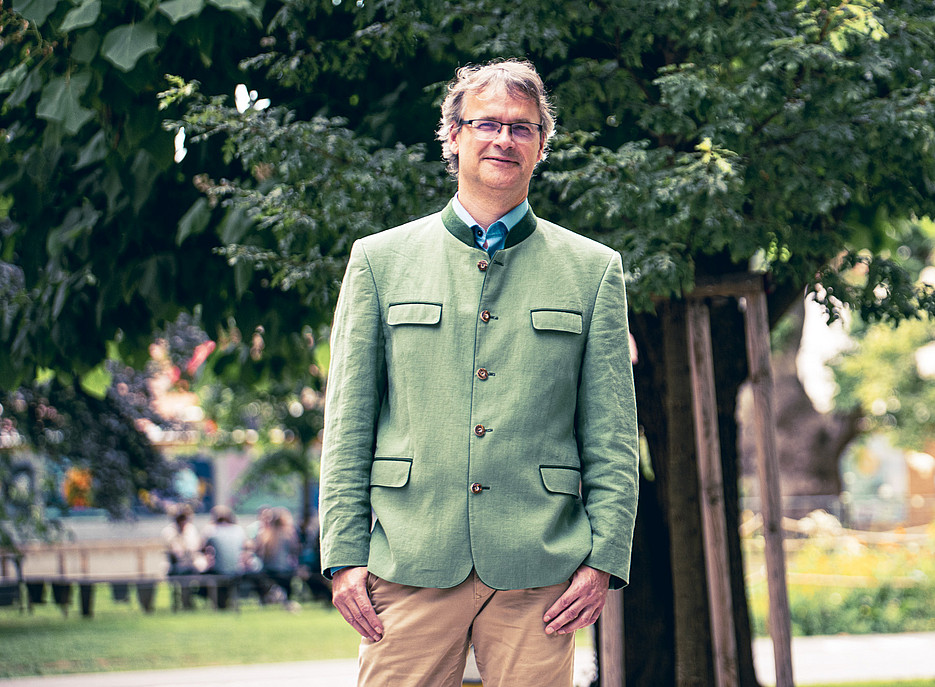The goal on the road to a climate-neutral future is to move away from fossil fuels and towards renewable raw materials. "However, it is not possible to produce everything that mankind needs on a regular basis from fresh biomass alone. Therefore, we have to consider how we can recycle materials," says Wolfgang Kroutil, a chemist at the University of Graz. His field of research is biocatalysis. The idea is to use a wide variety of enzymes from nature to make chemical production processes more environmentally friendly. Kroutil is a member of the board of directors of the Cluster of Excellence "Circular Bioengineering". Other researchers from the University of Graz involved in this major project include chemists Melanie Hall and Katalin Barta Weissert and environmental sociologist Hermine Mitter.
Disassemble and reassemble
The range of substances and materials that could be produced from renewable raw materials is broad. They include surface coatings, flavours and active ingredients for medicines. At the University of Graz, Katalin Barta Weissert is investigating what can be obtained from lignin to create something new. Lignin is a component of the wood cell wall and is a waste product in the paper and pulp industry and in sawmills.
Current research includes how lignin can be broken down into smaller chemical building blocks and subsequently be used to create an active ingredient for sedatives. Wolfgang Kroutil and Melanie Hall are developing sustainable biocatalytic methods for the chemical transformations required for this. "These do not require environmentally harmful organic solvents and save energy because they work at room temperature and in water," explains Kroutil. Hermine Mitter's task, finally, is to evaluate the biocatalytic methods. She checks whether these are actually superior to other methods in terms of efficiency and sustainability, taking into account all aspects.
Wolfgang Kroutil, who is responsible for the topic 'Biocatalysis and Sustainable Production Methods' within the 'Circular Bioengineering' excellence cluster, coordinates research groups from the University and Technical University of Graz, the University and Technical University of Vienna and BOKU University. "This cluster creates fantastic new opportunities for research by bringing together different competencies from the participating institutions – a combination that we have not had before. At the same time, it is a mandate for all participating scientists to contribute to a more sustainable future," emphasises the Graz-based chemist.


